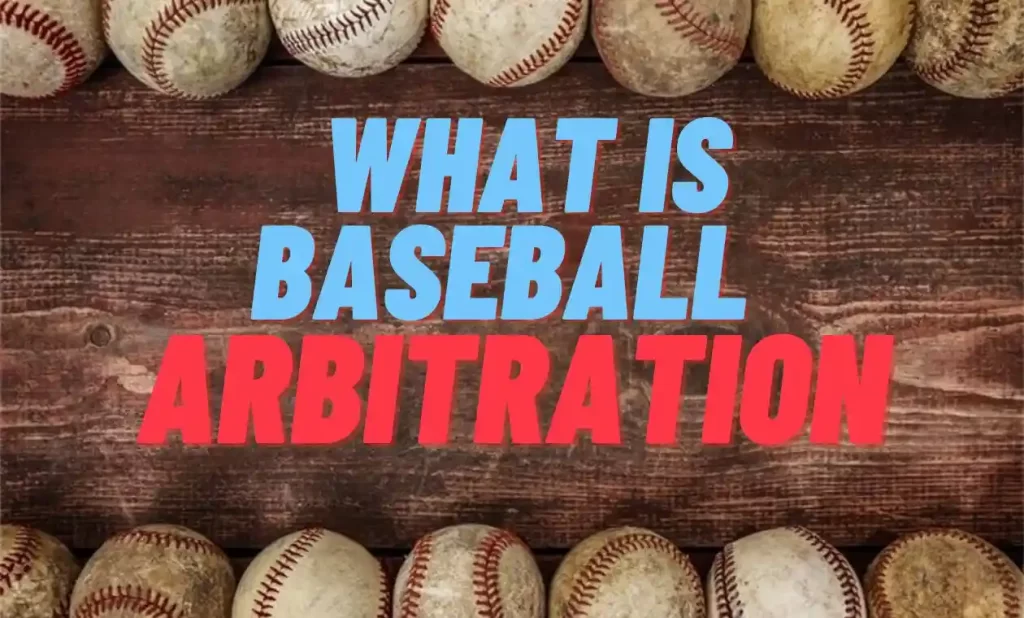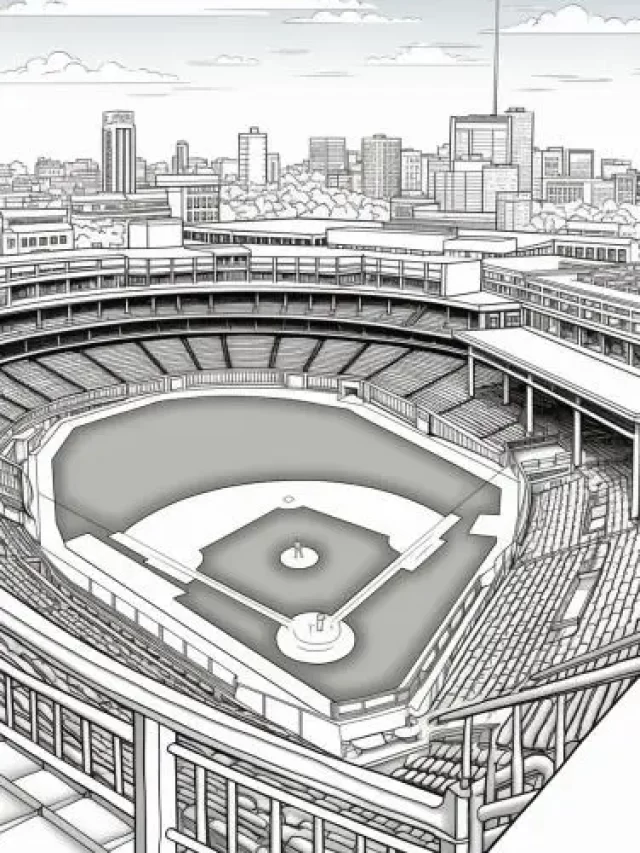The Role of Arbitration in Baseball Contracts

Arbitration in baseball contracts stands as a linchpin in the world of professional sports negotiations. Its significance reverberates throughout Major League Baseball, impacting players and teams alike. In this concise introduction, we’ll underscore the pivotal role that arbitration plays in shaping the financial landscape of the game, providing a glimpse of what this comprehensive blog entails.
Baseball arbitration serves as the ultimate arbiter when player-team negotiations reach an impasse. It steps in as the impartial decision-maker, ensuring that both parties come to a fair and binding resolution regarding player salaries. This process not only guarantees that players are compensated commensurate with their contributions but also influences the trajectory of player contracts for years to come.
In the upcoming blog, we will delve deep into the world of baseball arbitration. We will explore its various facets, including the types of arbitration, the eligibility criteria for players, the process from filing to hearings, and the profound impact it has on player contracts, team budgets, and player-team relations. We will also examine real-life arbitration case examples, shedding light on the real-world consequences of arbitration decisions.
Furthermore, we will consider the pros and cons of baseball arbitration, outlining the advantages and challenges it presents to both players and teams. Lastly, we’ll dissect the key factors that significantly influence arbitration outcomes, from player performance metrics to comparable contracts and team strategies.
Stay with us as we unravel the intricacies of baseball arbitration, providing valuable insights into a process that shapes the financial landscape of America’s favorite pastime. Whether you’re a passionate baseball fan or someone seeking to understand the inner workings of contract negotiations in professional sports, this blog will offer a comprehensive guide to the world of baseball arbitration.
What Is Baseball Arbitration?
Definition and Explanation
At its core, baseball arbitration is a dispute resolution mechanism used in the sport to settle salary disputes between players and teams. It’s a process designed to determine a fair and binding salary for a player whose contract negotiations have reached an impasse. In other words, when a player and their team can’t agree on a salary figure, they turn to arbitration as the final decision-maker.
Origins and History
The roots of baseball arbitration can be traced back to the 1970s when it was first introduced as a means to resolve contract disputes. Prior to that, the negotiation process often led to contentious battles, and arbitration was seen as a more efficient and fair way to reach a resolution. Over the years, it has become an integral part of the baseball landscape.
Types of Baseball Arbitration
Salary Arbitration
The most common form of baseball arbitration is salary arbitration. It primarily deals with salary disputes between players and teams. When a player becomes eligible for arbitration, typically after their first three years in the league, they can file for salary arbitration if they can’t agree on a new contract with their team. This process is commonly known as “arbitration-eligible.”
Grievance Arbitration
While salary arbitration focuses on financial matters, grievance arbitration centers on disputes related to the interpretation or application of the Collective Bargaining Agreement (CBA) between Major League Baseball and the Players Association. Grievances can range from disciplinary actions to contract-related disputes.
How Does Baseball Arbitration Work?
Arbitration Eligibility
Not every player in Major League Baseball is eligible for arbitration. To qualify, players must meet specific criteria related to service time and playing experience. Typically, players become arbitration-eligible after completing their first three full seasons in the league or after accumulating a certain amount of service time.
Filing for Arbitration
When a player becomes eligible for arbitration, they have a specific window to file for the process. This filing period usually occurs in January. Once a player files for arbitration, both the player and the team must exchange salary figures.
Arbitration Hearings
Arbitration hearings are pivotal moments in the process. During these hearings, both the player and the team present their cases to an impartial arbitrator. They provide evidence, statistics, and arguments to support their proposed salary figure. The arbitrator carefully considers all the presented information before making a binding decision.
Arbitrator’s Decision
The arbitrator’s decision is final and binding. They review the evidence, statistics, and arguments presented by both parties and determine the player’s salary for the upcoming season. The decision is typically one of the two salary figures proposed, and there is no middle ground. This “winner-takes-all” approach adds a layer of strategy to the negotiation process.
The Impact of Baseball Arbitration
Baseball arbitration isn’t just a legal process; it’s a mechanism that influences player contracts, team budgets, and player-team relations. In this section, we’ll explore how arbitration in baseball has a significant impact on various aspects of the sport.
Player Contracts
Arbitration plays a pivotal role in shaping player contracts. When a player goes through the arbitration process, the resulting salary often sets a benchmark for future contract negotiations. This means that the outcome of arbitration can have long-lasting effects on a player’s earning potential throughout their career. Players who perform exceptionally well during their arbitration years often secure more lucrative contracts when they become free agents.
Team Budgets
Teams also feel the ripple effects of baseball arbitration on their budgets. The salaries awarded through arbitration can significantly impact a team’s payroll. As a result, teams must carefully manage their budgets to accommodate arbitration awards while maintaining a competitive roster. Some teams may choose to avoid arbitration by reaching pre-arbitration settlements, ensuring cost predictability.
Player-Team Relations
The arbitration process can sometimes strain player-team relations. When players and teams are unable to reach a mutual agreement, the arbitration hearing can become a contentious affair. The process involves both parties presenting arguments for their desired salary, which may involve highlighting shortcomings or areas where the player excels. While arbitration is a necessary part of the game, it can create tensions that need to be managed to maintain a positive working relationship.
Arbitration Case Examples
To better understand the impact of baseball arbitration, let’s explore a few real-world examples of notable arbitration cases:
Case 1: A Young Phenom’s Rise
In one arbitration case, a young, rising star player went through the process and was awarded a significant salary increase due to outstanding performance in their early years. This decision set the stage for a series of lucrative contracts, making the player one of the highest-paid in the league.
Case 2: The Challenge of Injury
Another case involved a player who had suffered a significant injury during the previous season. The arbitration hearing considered the player’s reduced performance due to the injury, resulting in a lower salary award. This case highlighted the importance of health and performance in arbitration outcomes.
Case 3: The Impact on Team Finances
In a team’s arbitration case, the award had a substantial impact on their overall payroll. This led the team to make strategic decisions regarding their roster composition, including trading or signing players to maintain financial stability.
Understanding these real-life scenarios demonstrates the wide-reaching consequences of baseball arbitration decisions. From players securing their financial futures to teams managing budgets and player-team dynamics, arbitration is a dynamic element of the sport.
Pros and Cons of Baseball Arbitration
Baseball arbitration is a unique process with its share of advantages and disadvantages, both for players and teams. In this section, we’ll break down the pros and cons, shedding light on the complexities of this arbitration system.
Advantages for Players
1. Fair Compensation: One of the primary benefits of arbitration for players is that it provides a mechanism for securing fair compensation. It ensures that players receive salaries commensurate with their performance and contributions to the team.
2. Salary Benchmark: Arbitration awards often serve as benchmarks for future contracts. Players who perform well in arbitration years set themselves up for more substantial contracts when they reach free agency, potentially earning significant pay increases.
3. Short-Term Gains: Players can benefit from arbitration awards in the short term, receiving substantial salary increases early in their careers. This can have a positive impact on their financial stability and future earning potential.
4. Opportunity to Present Case: Arbitration hearings allow players to present their case and argue for the salary they believe they deserve. This gives players a voice in their contract negotiations.
Advantages for Teams
1. Cost Predictability: For teams, arbitration provides a level of cost predictability. By going through arbitration, they can determine player salaries for the upcoming season, making it easier to manage their budgets.
2. Avoiding Free Agency: Arbitration can help teams retain key players for a few additional years before they become free agents. This allows teams to maintain roster continuity and competitive strength.
3. Risk Mitigation: Teams can use arbitration to mitigate the financial risk associated with long-term contracts. If a player underperforms, their salary is typically lower than what they might command on the open market.
4. Efficient Resolution: Arbitration is often a more efficient way to resolve contract disputes compared to protracted negotiations. It provides a structured process with set deadlines.
Challenges and Drawbacks
1. Tension in Player-Team Relations: The arbitration process can sometimes create tension between players and teams. Arguments made during hearings may highlight areas of disagreement, potentially straining relationships.
2. Limited Middle Ground: Arbitration decisions typically favor one party’s proposed salary figure, leaving little room for compromise. This “winner-takes-all” approach can be disadvantageous for both players and teams.
3. Uncertainty for Players: Players may face uncertainty regarding their salary until the arbitration process is complete. This uncertainty can be stressful and affect their focus on the game.
4. Strategic Risks: Teams face strategic risks in arbitration. A decision that significantly favors a player can impact their budget and roster planning, leading to tough decisions regarding player acquisitions and releases.
Understanding the pros and cons of baseball arbitration is essential for both players and teams as they navigate the contract negotiation landscape. The process has its merits, but it also presents challenges that require careful consideration.
Key Factors Affecting Baseball Arbitration Outcomes
The results of baseball arbitration cases are not arbitrary; they are influenced by several key factors that both players and teams consider during the process. Understanding these factors is crucial for those involved in arbitration negotiations.
Player Performance Metrics
Performance Metrics Matter: One of the central factors in arbitration cases is a player’s on-field performance metrics. These include statistics like batting average, home runs, runs batted in (RBIs), earned run average (ERA) for pitchers, and fielding statistics. Outstanding performance can significantly boost a player’s case for a higher salary.
Consistency Counts: Consistency in performance over multiple seasons carries weight in arbitration. Players who consistently perform at a high level are more likely to secure favorable arbitration awards.
Comparing to Peers: Arbitrators often compare a player’s performance to that of their peers. Players who outperform others with similar service time and experience have a stronger case for higher salaries.
Comparable Contracts
Previous Arbitration Cases: The outcomes of previous arbitration cases can serve as benchmarks for current negotiations. Players and teams often refer to similar cases to support their proposed salary figures.
Comparable Players: Arbitrators may consider contracts awarded to players with similar skill sets and performance histories. These “comparable players” help establish a framework for determining fair compensation.
Contract Trends: Arbitration awards can be influenced by broader trends in player contracts. For example, if there’s a trend of rising salaries in the league, it may impact arbitration decisions.
Team Strategies
Risk Tolerance: Teams approach arbitration with varying degrees of risk tolerance. Some teams may be willing to take calculated risks in arbitration, while others prefer to reach settlements to avoid the uncertainty of a hearing.
Long-Term Planning: Team strategies often extend beyond the current season. They consider how arbitration awards will impact their budget and roster planning for the next few years.
Balancing Act: Teams must strike a balance between retaining key players and managing their payroll. This balancing act can influence their negotiation approach.
Understanding these key factors provides insight into the dynamics of baseball arbitration. It’s a process where performance, precedent, and negotiation strategies intersect to determine a player’s salary.
Conclusion
In closing, our journey through the world of baseball arbitration has revealed its paramount importance in the realm of professional sports contracts. This intricate process, designed to resolve salary disputes between players and teams, leaves an indelible mark on Major League Baseball. Let’s recap the key takeaways from this comprehensive exploration and underscore the critical significance of understanding baseball arbitration.
Throughout this blog, we’ve learned that baseball arbitration takes two primary forms: salary arbitration and grievance arbitration, each serving distinct purposes within the sport. The arbitration process itself, from eligibility criteria to hearings and final decisions, offers a structured framework for resolving disputes. Its outcomes have far-reaching implications for player contracts, team budgets, and the delicate balance of player-team relations.
The pros and cons of baseball arbitration illustrate its unique position in the world of contract negotiations. While it ensures fair compensation and cost predictability, it can also strain relationships and limit negotiation flexibility. Recognizing these nuances equips players and teams to navigate the process effectively.
Furthermore, we’ve dissected the key factors that sway arbitration outcomes, including player performance metrics, comparable contracts, and team strategies. These elements provide valuable insights into the dynamics of arbitration negotiations.
As we conclude this exploration, it’s essential to grasp that baseball arbitration isn’t just a legal process—it’s the heartbeat of player contracts and team financial strategies. Understanding its intricacies is paramount for anyone involved in the world of professional baseball, from players and agents to team executives and devoted fans.
In essence, baseball arbitration is the invisible hand that shapes the financial destiny of the game. It serves as a testament to the sport’s commitment to fairness and transparency in compensation. Whether you’re an aspiring player, a seasoned pro, or a baseball enthusiast, this knowledge empowers you to navigate the world of baseball contracts with confidence.
Thank you for joining us on this enlightening journey into the heart of baseball arbitration. May this knowledge enrich your appreciation of America’s beloved pastime and empower you to make informed decisions within the world of baseball contracts.
Explore our other baseball-related articles:
- Iconic Baseball Jackets
- Baseball Jacket Styling Tips
- Baseball Jackets Trend
- Best Baseball Gloves by Position
- Best Baseball Cleats for Traction
- Baseball Glove Buying Guide
- Baseball Fan Accessories
- Rules and Regulations Guide
- Baseball Cultural Significance
- Baseball Helmet Guide
- Inside Baseball Core Cover
- Historical Moments in Baseball
- Understanding the Basics of Baseball
- Baseball Bat Guide
- Selecting the Perfect Baseball Bat
- Aluminum vs. Wooden Bats
- Cultural Impact of Baseball Caps in Fashion
- Best Baseball Bats for Power Hitters
- How to Choose the Right Baseball Cap
- Top 10 Baseball Caps of 2023
- The Evolution of Baseball Caps: A Historical Overview
Baseball Arbitration FAQs
[sp_easyaccordion id=”790″]

Meet Daniel Anderson, the heart and soul behind Baseball Pro Picks. At 49, Daniel’s life has revolved around baseball, a passion that’s as strong today as it was when he first fell in love with the game. Living in the USA, Daniel has dedicated countless hours to watching, analyzing, and understanding every pitch, hit, and home run, making almost no game missed. His deep-rooted love for the sport is matched only by his commitment to sharing insightful, expert analysis with fellow baseball enthusiasts. With decades of experience and a keen eye for the game’s nuances, Daniel brings a unique perspective that enriches Baseball Pro Picks. Trust Daniel to guide you through the intricacies of baseball with the authority and trustworthiness of a true aficionado.












